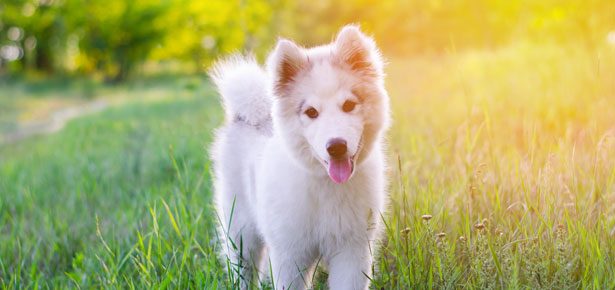

CBD For Dogs: What Is the Bark All About?
Since CBD is an up-and-coming industry, especially CBD for pets, it is important to understand exactly how CBD works and what it can treat before you can decide if it is right for you.
My 11-year-old schnauzer, Odie, is a little old man at heart. He stands tall, not seeming to notice that he is actually 3-feet shorter than the big dogs around him, and barks at them until they do his bidding. He is a spitfire.
But three years ago, Odie began to experience joint pain and severe storm anxiety. The leader of my family’s pack would suddenly be found shaking, compulsively licking, and unable to move. As he has aged, his back legs have begun to kick at random, causing him to stay up at night and be completely exhausted – which only intensifies his anxiety.
It was hard to see Odie suffer. But, with the help of CBD, I have seen Odie become healthier and more like his old self.
Since CBD is an up-and-coming industry, especially CBD for pets, it is important to understand exactly how CBD works and what it can treat before you can decide if it is right for you.
How does CBD work?
Cannabidiol, CBD, is a cannabinoid (or compounds in the plant) found in the cannabis plant. The cannabis plant is separated into two plant types, marijuana and hemp. Hemp has less than .3 percent of THC (the psychoactive component associated with feeling “high”) but has all of the cannabinoids, including CBD that the cannabis plant contains. Unlike marijuana, hemp is legal in all 50 states, Canada, and Mexico.
CBD and other cannabinoids interact with the body’s endocannabinoid system to help carry messages between cells. There are two types of receptors in the endocannabinoid system – CB1 and CB2 receptors. CB1 receptors are located in the brain, spinal cord, lungs, muscles, GI tract, and vascular system, while CB2 receptors function in the peripheral nervous system, as well as the bones, skin, and spleen. Many cannabinoids work with both CB1 and CB2 receptors, meaning that a single compound can have several positive benefits.
CBD works so well in dogs, because dogs have more receptors in their endocannabinoid system than even people. This means that the positive effects of CBD are felt even stronger in dogs.
What does CBD treat?
CBD hemp oil can treat a variety of illnesses and is effective as preventative care. In fact, hemp seed oil contains the perfect ratio of Omega-3 and Omega-6 fatty acids and has better overall nutrition than fish oil. This makes CBD a fantastic preventative aid to maintain good heart health.
The list of ailments CBD can treat is extensive, and includes (but is not limited to):
- Anxiety, including separation anxiety and noise anxiety
- Stress
- Allergies
- Joint pain and inflammation
- IBS and other digestive issues
- Tumors and cancer
- Seizures
For dogs who suffer from compulsive licking or biting due to anxiety, joint damage, seizures, tumors, cancer, or allergies, CBD can not only treat the symptoms, but can treat the whole dog. Some prescription medications will only mask symptoms of an illness without treating the underlying problem and are costly, often requiring multiple trips to the veterinarian for refills. Pet parents looking for a safer, more cost-effective option are turning to CBD.
How do you safely use CBD and what are some common terms I should know?
Most CBD companies use tinctures (oils) or treats to administer CBD. You can mix it into your pet’s food or you can put it in their mouth to swallow. CBD can also be absorbed through the gums and can be administered by lifting the dog’s lip and inserting it right into the gums.
I give Odie a dose of CBD in the morning, and depending on his pain level, I may give him another dose in the afternoon.
CBD products range in the total number of milligrams of CBD per ounce, and they range in the spectrum of cannabinoids. Full-spectrum means that as many natural cannabinoids are present as possible and none were removed or isolated during extraction. Broad spectrum means that some cannabinoids may have been taken out or enhanced. Whenever possible, full spectrum is best for pets.
Most CBD products on the market start anywhere from 50 to 150 mg and go all the way up to 1100 mg of CBD per ounce. Typically, the higher the number of milligrams of CBD, the stronger the effect will be. When shopping for CBD oil, make sure to pay attention to the label. If the label says 1700 mg of hemp oil, but does not say the total number of milligrams of CBD oil, that does not mean there are 1700 mg of CBD oil. CBD oil and hemp oil are not the same. They both have healthful, important qualities, but CBD is extracted from the leaves and flowers of the hemp plant, while hemp oil is extracted from the seeds and stalks of the plant.
Your veterinarian may not be able to talk about CBD unless asked specifically about it, but you should discuss with them any supplements, including CBD, that you are giving your dog.
Are there any side effects?
One of the appealing benefits of CBD oil for pet parents is that CBD is safe and non-toxic, and CBD is a medicine on which it is impossible to overdose. There are no negative, long-term side effects. If you give your dog too much, what is not absorbed will be excreted through the waste.
Because of CBD, Odie is able to rest comfortably, run, play, and act like his normal self without the constant kicking, licking, anxiety, and pain. I have seen the miracles of CBD firsthand, and recommend it as a safe, natural way to treat pain in your pets.
Angela Ardolino has been caring for animals since she was 8 years old and has operated a farm rescue, Fire Flake Farm, for over 10 years. She also is the owner of Beautify the Beast a natural pet salon and spa, and the founder of CBD Dog Health. Angela is an expert in medical cannabis, holding a degree in the therapeutic uses of cannabis from the University of Vermont, and has dedicated her life to providing all-natural relief for pets of all kinds. She has three dogs, and 4-10 at anytime that she is fostering or boarding. Visit www.angelaardolino.com and www.cbddoghealth.com to learn more.
Join the newsletter and never miss out on dog content again!
"*" indicates required fields
By clicking the arrow, you agree to our web Terms of Use and Privacy & Cookie Policy. Easy unsubscribe links are provided in every email.





